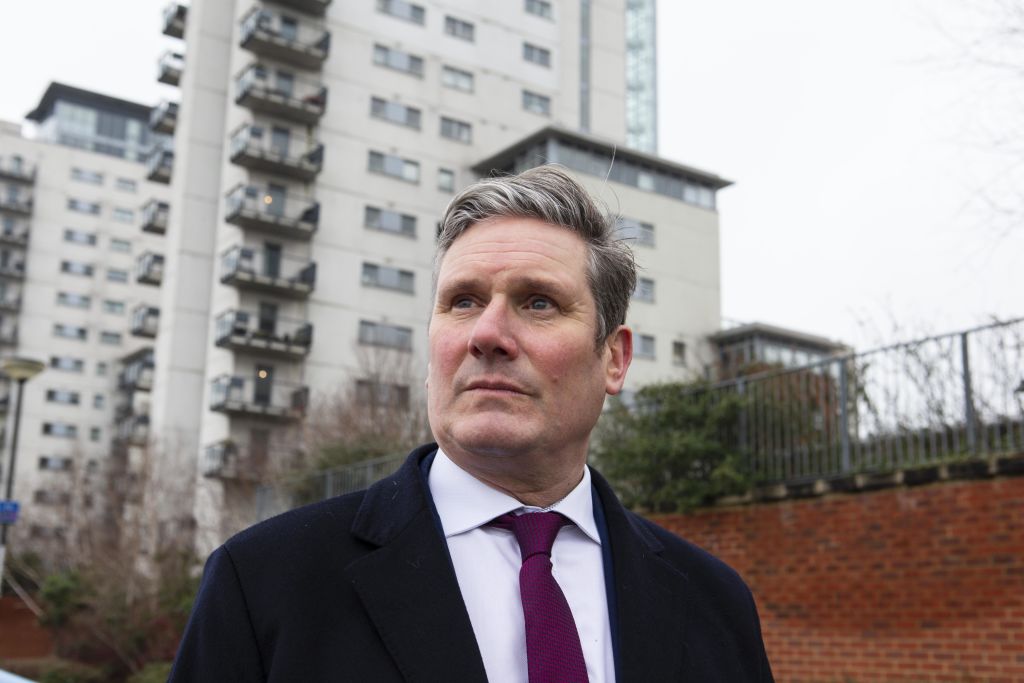Keir Starmer is in the middle of his first proper row with his party. The Labour leader is not rowing back from his decision to tell Laura Kuenssberg that he wouldn’t reverse the two-child limit on child benefits. In fact, he’s leaning into it, even though he has achieved the incredible feat of uniting Rosie Duffield and Lloyd Russell-Moyle against it (the two backbenchers are normally found disagreeing vehemently on sex and gender). At today’s shadow cabinet meeting, the Labour leader told his top team that they would have to get used to these kinds of uncomfortable decisions because ‘tough choices is not a sound bite’. He insisted that ‘it’s vital to us being able to do what we need to do in government and getting over the line’.
I understand that some shadow cabinet members have spent the afternoon defending their silence to those colleagues
He was backed up by other colleagues, including shadow work and pensions secretary Jon Ashworth, who previously called the two-child limit ‘heinous’. Shadow levelling up secretary Lisa Nandy also spoke in favour, as did shadow chief secretary to the Treasury Pat McFadden (though that is less surprising). No one spoke against the policy, which has hugely frustrated some of the backbenchers who want Starmer to backtrack. I understand that some shadow cabinet members have spent the afternoon defending their silence to those colleagues. Others who are supportive of the leader’s stance say he was ‘really forceful and strong today’.
Harriet Harman went through this back in 1997 when as Social Security Secretary, she was forced to cut benefits for lone parents. There were stormy meetings of the parliamentary Labour party back then, too. When I spoke to Harman today for Times Radio, she told me:
It was very painful, and very difficult. I mean, once we were in government, we could do a whole load of things that we could start on right away, which didn’t have financial implications, like starting the Human Rights Act, starting the Freedom of Information Act, starting devolution to Scotland and Wales, there was a whole load of things… but the thing about benefits is that benefits because they’re a legal entitlement depend on legislation… we had to come to the House of Commons to do the spending cuts which the Tories had scheduled in, and it was not what we wanted to do.
But actually, we had to ensure that we carried through on our promises. So that was our promise to the electorate, but there was also behind that an issue of confidence that the financial markets would have in the Labour government… and therefore the financial markets would panic in the face of a new Labour government, and then we’d have won the election, but we would be thrown out of government because there’d be economic chaos.
Even those who understand the need to ensure Labour’s policies meet fiscal rules are uncomfortable with the way it has been communicated. One senior figure complained to me that ‘people have ended up thinking that he’s actually in favour of the policy itself, rather than just that he knows he would not be able to reverse it straight away’. When I spoke to Neil Coyle earlier today, the chair of the party’s backbench committee argued there was a comms problem:
I think people are upset about how it’s come about. But I don’t think there is disagreement that the Labour message right now has to be one of what the party will do, it will do when it’s affordable and right to do it. I don’t think there’s a step back from the commitment to tackling the growth in child poverty. Labour has committed to doing that, but this has been perhaps it could have been better handled, I think is the consensus.
Starmer had another chance to underline his ‘tough choices’ message when he appeared at Tony Blair’s Future of Britain conference and was interviewed by the former prime minister. He argued that:
We keep saying collectively as a party that we’ve got to take tough decisions, and in the abstract, everyone says that’s right Keir, and then we get a tough decision – and we’ve been in one of those over the last few days, they say, oh I don’t like that, can we just not make that one, I’m sure there’s another tough decision we can make, but we have to take the tough decisions. This isn’t some reflection on some sort of focus group that says we’d like Labour to have an economic straightjacket on. It’s the fundamentals.
Mind you, the limit does poll well with the public, so this is more of an internal party issue than it is a confrontation with the electorate. The question is whether Starmer decides to be more ambiguous the next time an interviewer asks him whether or not he would scrap a specific policy. He may decide that he doesn’t want too many noisy fights within the party between now and the next election.







Comments